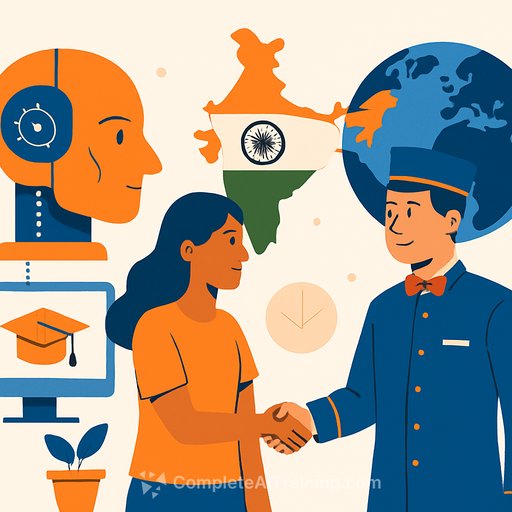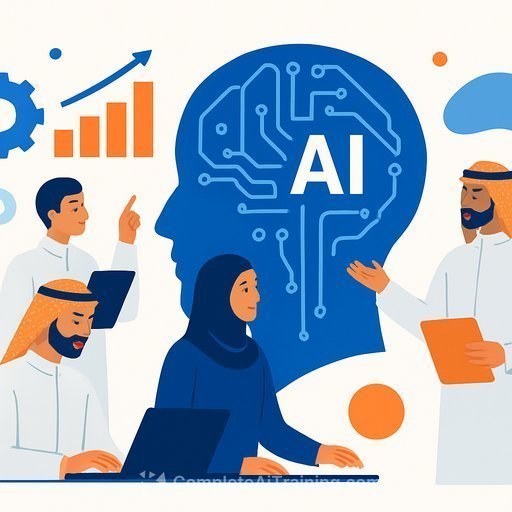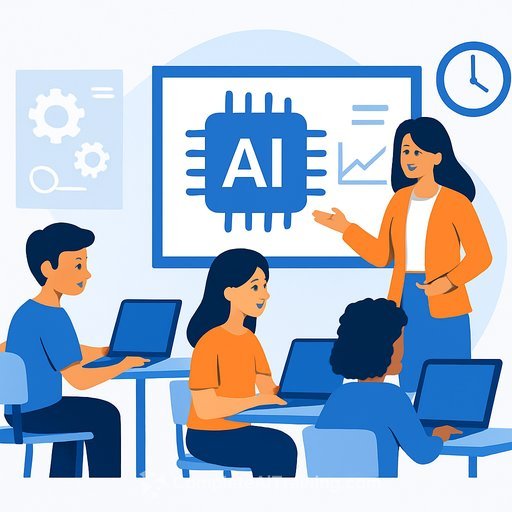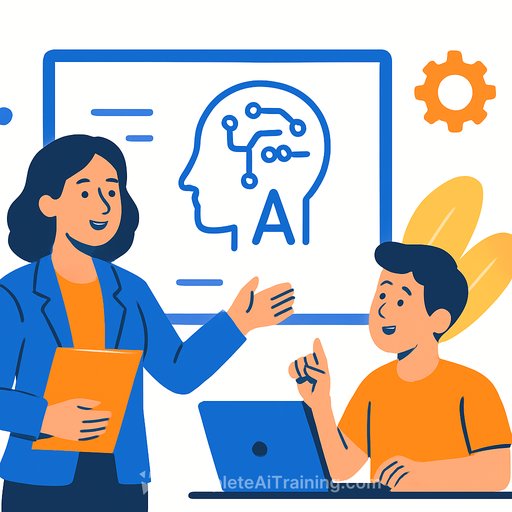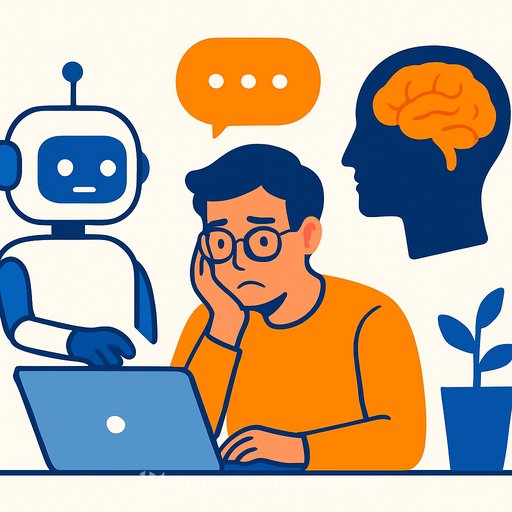Educating for excellence: Hospitality, AI, and the rise of Brand India
India's growth story is creating a new base for education strategy. Hospitality has bounced back from the pandemic and is now a major lever for Brand India, pulling talent, investment, and global attention.
For educators, this is a clear signal: align training with the market's next phase and build AI fluency into every layer of hospitality education.
What the numbers signal
- RevPAR peak: India's hospitality sector is projected to hit its highest RevPAR in a decade by FY2025, with momentum into FY2026. Since January 2024, RevPAR improved by 15-17%, reaching ₹6,006-6,324.
- Occupancy surge: Rates are expected to reach 72-74% by FY2026, powered by a strong domestic market and rising international footfall.
- Investor interest: New brands are entering, hotel companies are eyeing listings/IPOs, and hospitality indices are forming in capital markets.
Demand is rising. Supply will follow. Education is the bridge. The institutes that modernize now will become the primary talent pipeline.
AI is now the heartbeat of hospitality education
Hospitality runs on human connection. AI won't replace that; it will clear the path for it. Automating routine tasks frees staff to deliver personal, high-value service.
The International Institute of Hotel Management (IIHM) has moved early. Through a knowledge-sharing declaration with over 60 countries, IIHM is set to launch NamAIste, IIHM HospitalityGPT-a Generative AI knowledge engine for hospitality, powered by LLM RAG.
As shared publicly by IIHM leadership: "This is IIHM's gift to the world. This is not made in Silicon Valley or China but here in India. This is truly Indian and yet amazingly international." The direction is clear: sector-specific AI built on shared knowledge will define future-ready training.
Principle 1: Collaborate, don't compete
Hospitality education is a supply chain. Graduates fuel hotels, restaurants, travel, events, and allied services. The sector grows faster when institutes share knowledge, data, and faculty development methods.
Create consortia, co-build learning assets, and pool case libraries. The rising tide lifts placement outcomes for everyone.
Principle 2: Training is everything
Coursework must reflect the floor, the kitchen, the revenue desk, and the back office as they operate now. Many training elements age out each year.
Integrate AI so students learn to run smarter operations while strengthening empathy, service recovery, and brand experience.
Principle 3: Evolve, don't imitate
Copying last year's syllabus from another institute is a dead end. Adapt fast through shared playbooks and open knowledge exchange.
Sector-specific LLMs thrive on contributions. The more credible input from educators and operators, the better the answers and the stronger the training outcomes.
Principle 4: Benchmark to build trust
Parents, students, and employers place their trust in institutes that measure what matters and publish it. Benchmark against the world's best on faculty development, curriculum alignment, AI integration, and service standards.
Know where you stand, fix the gaps, and show your work. Trust follows transparency.
A practical blueprint for AI-first hospitality programs
- AI literacy for hospitality: How LLMs, RAG, and automation apply to PMS, POS, CRM, and revenue systems; strengths, limits, and failure modes.
- Prompt and workflow design: Role-based prompting, checklists, chain-of-thought scaffolds, and human-in-the-loop review for accuracy and tone.
- RAG knowledge hubs: Build a private knowledge base from SOPs, menus, brand voice guides, and training manuals; maintain governance for updates.
- Revenue management labs: Simulate pricing, channel mix, and demand forecasts using real or synthetic data; compare AI-supported decisions with human baselines.
- Operations automation: Use AI to draft SOPs, shift rosters, inventory forecasts, and maintenance schedules; measure time saved and error reduction.
- Guest experience and service recovery: AI-assisted pre-arrival profiling, upsell suggestions, and post-stay feedback analysis; teach empathy and escalation paths.
- Culinary and F&B: Menu engineering with cost models, yield management for banquets, and AI-generated mise en place checklists validated by chefs.
- Ethics, bias, and data protection: Consent, PII handling, model bias, audit trails, and compliance basics for hospitality data flows.
- Human skills stack: Empathy, cultural intelligence, leadership, conflict resolution, and luxury service standards-practiced with AI role-plays.
- Industry immersions: Co-op terms with hotels using AI tools; joint capstones co-supervised by operators; problem statements tied to live KPIs.
- Faculty upskilling: Quarterly AI teaching sprints, peer demos, and shared repositories of prompts, datasets, and classroom cases.
Consortium model for knowledge sharing
- Create a shared content library: SOPs, anonymized case logs, and guest feedback datasets for education use.
- Agree on data standards, labeling, and update cadence for any sector LLM or RAG system.
- Run inter-institute hackathons focused on service design, revenue outcomes, and sustainability.
- Publish comparative dashboards of student outcomes and placement quality.
Benchmarks that matter
- Curriculum fit: % of modules with hands-on AI tasks mapped to specific hotel functions.
- Faculty readiness: % of faculty certified in AI literacy and tool workflows.
- Student performance: Time-to-proficiency on PMS/CRM/revenue tools; service recovery scores in simulations.
- Industry impact: Placement rate, role quality, employer NPS, and first-year retention.
- Operational gains from capstones: Documented cost savings, upsell lift, or CX improvements at partner hotels.
90-day action plan for deans and program heads
- Days 1-15: Audit curriculum for AI touchpoints; select two departments (e.g., Front Office and Revenue) for pilot modules.
- Days 16-45: Train faculty; build a small RAG knowledge base from existing SOPs; set data governance rules.
- Days 46-75: Launch two live labs (revenue simulation and guest feedback analysis); collect baseline metrics.
- Days 76-90: Review outcomes with industry partners; publish updates; plan scale-up across remaining departments.
Why this matters to Brand India
The sector is pulling global attention. With AI-infused, service-first training, graduates will raise service standards, improve profitability, and strengthen India's position as a hospitality hub.
Educators who act now will produce the talent this surge demands-and set benchmarks others will follow.
Further reading
Tools and training
Your membership also unlocks:

